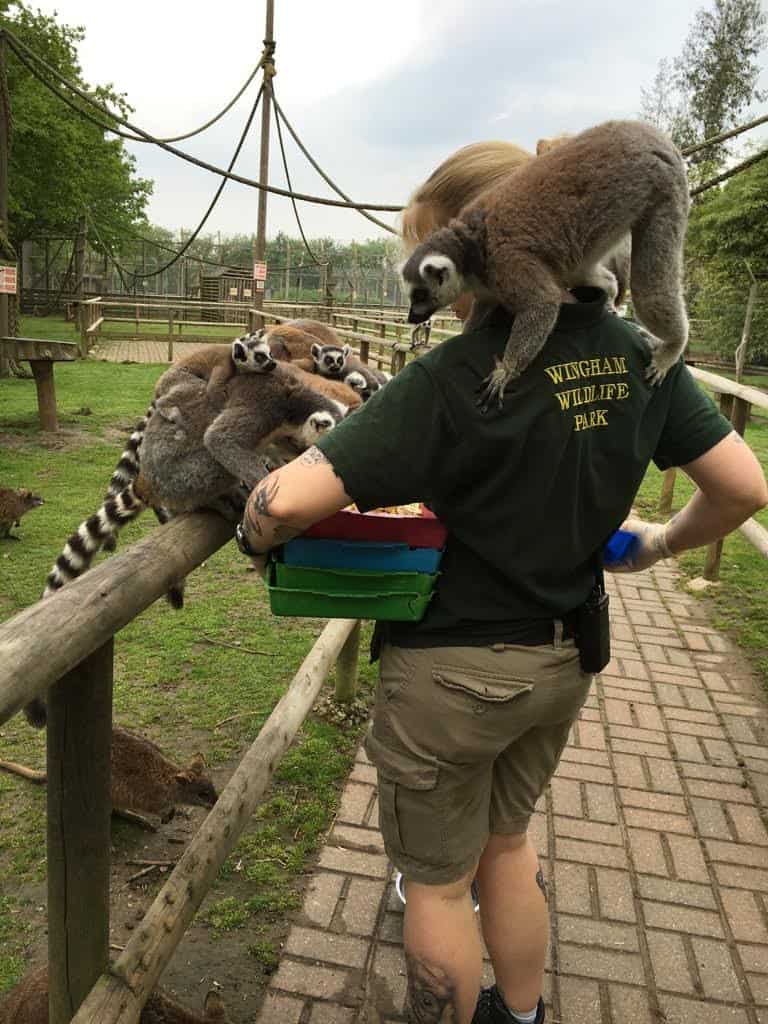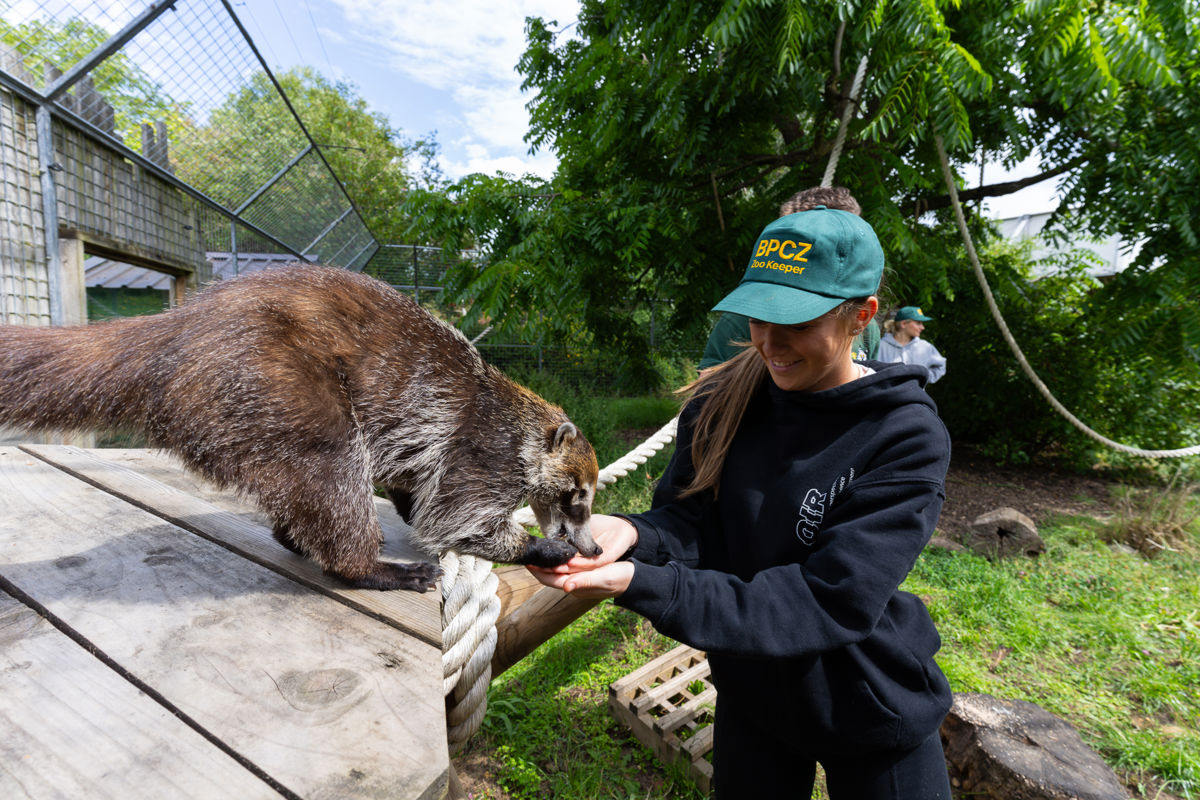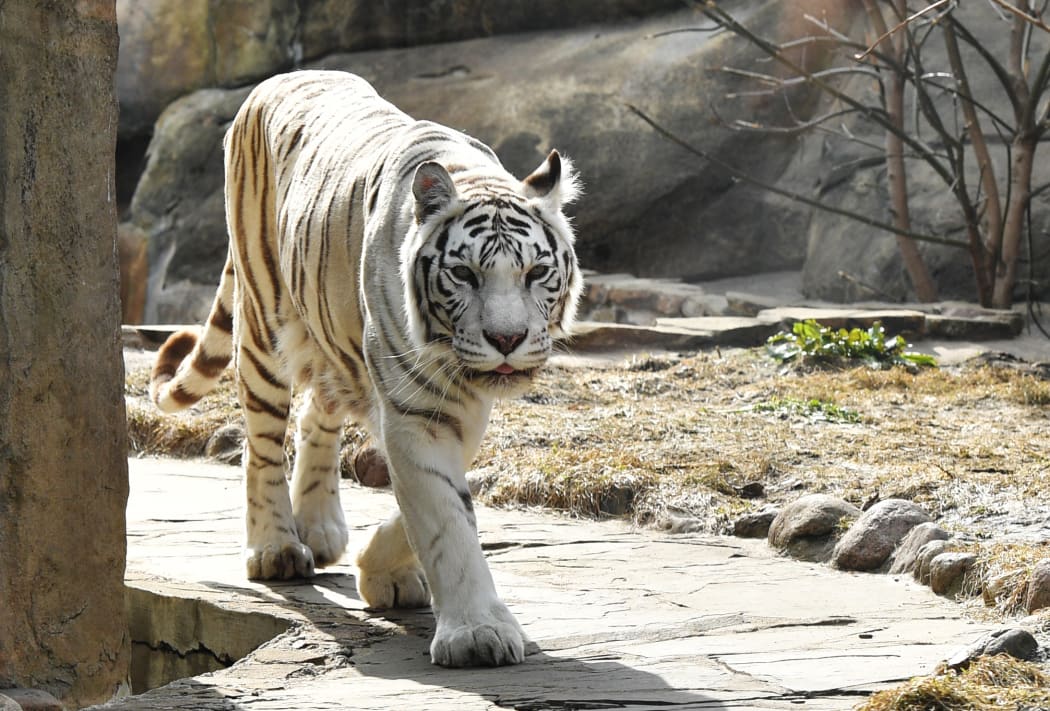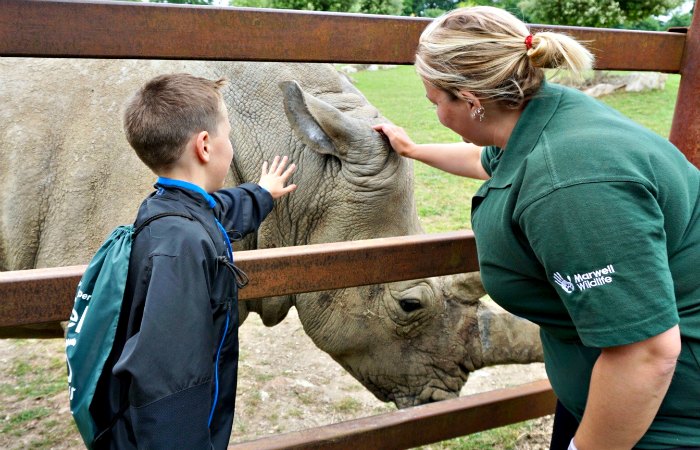How To Become A Zoo Keeper?
페이지 정보

본문
"The achievement of a nation and its moral development can be judged by the way its animals are treated." - Mahatma Gandhi

Do you like animals and dream of working in a zoo? Zoo keepers are type in protecting wildlife and taking care of animals. At locations like the Zoological Society of London (ZSL), over 20,000 animals get the care they need from specialists.

To become a zoo keeper, you require hard work, education, and a love for animals. This task is exciting, letting you deal with many species and aid with important preservation work. If you're into wildlife or animal welfare, zookeeping might be best for you.
Starting your zoo keeper profession implies discovering what's required. This guide will cover education, experience, and more. It's all you need to understand to begin a satisfying zookeeping career.
Comprehending the Role of a Zookeeper
Exploring what a zookeeper does exposes a function full of obstacles and . They focus on animal welfare and preservation. Zookeepers strive to keep animals healthy and pleased in their care.
Daily Responsibilities and Tasks
A zookeeper's day is filled with crucial jobs:
- Preparing meals that fulfill each animal's nutritional needs
- Cleaning enclosures to keep them tidy and safe
- Watching over animal health and behaviour
- Offering medications and treatments as required
- Producing activities to keep animals mentally sharp
Workplace and Conditions
Zookeepers work outside in all type of weather condition. They handle both indoor and zookeeper outside areas. The job requires being fit and able to deal with the needs of looking after animals.
"Being a zookeeper is more than a job - it's an enthusiastic commitment to animal care and conservation."
Types of Animals and Specialisations
Zookeepers can specialise in numerous animal groups:
- Primates
- Big cats
- Marine mammals
- Reptiles
- Birds
Your function might involve working with 2-5 different animal species. This requires a lot of knowledge and zookeeper the ability to adapt.
Important Skills and Personal Qualities for Zoo Keeping
To be a top zookeeper, you need more than simply a love for animals. Your job will be difficult and need you to deal with animals and zookeeper individuals well. You'll also need to understand animal behaviour.

What zoos search for in individuals includes:
- Exceptional persistence and emotional durability
- Strong physical conditioning and stamina
- Keen observation skills
- Capability to remain calm under pressure
- High level of compassion towards animals
Getting hands-on experience is crucial to mastering this role. You'll need to show:
- Advanced understanding of animal care techniques
- Proficiency in animal handling and safety protocols
- Efficient interaction with both animals and human visitors
"A fantastic zookeeper links science, empathy, and conservation in every interaction with animals."
You should know about animal nutrition, behaviour, and standard vet care. The majority of zookeepers learn through training, volunteering, and continuous knowing.
Zookeeper work is not simply a task. It's a huge commitment to teaching about wildlife and helping conservation. Your enthusiasm and effort will make you stick out in this satisfying profession.
How to Become a Zoo Keeper
Starting a career as a zookeeper needs cautious preparation and education. You should first understand the instructional needs and training paths. These will turn your love for animals into a task.
Educational Requirements
To be a great zookeeper, you need a strong scholastic base. Most tasks try to find certain certifications:
- At least 5 GCSEs at grade 4 or above, including English, mathematics, and science
- A levels or higher education certifications
- A college degree in biology or animal science
- Level 3 Diploma in Animal Management
Necessary Certifications
Getting special certifications can actually assist you in your zookeeper profession. Important ones consist of:
- Diploma in Management of Zoo and Aquarium Animals (DMZAA)
- Zookeeping Level 3 Diploma (RQF)
- Animal dealing with certificates
- Emergency treatment credentials
Training Programs and Apprenticeships
Getting hands-on experience is key in zookeeper training. Many locations use fantastic chances:
- Unpaid apprenticeships at wildlife parks
- Internship programmes at well-known zoos
- Practical training at locations like Colchester Zoo and Dartmoor Zoo
- Offering to acquire real-world skills
Pro suggestion: Create an in-depth portfolio to reveal your animal care skills. It will assist you in job applications.
Building Relevant Experience in Animal Care
Acquiring hands-on experience is crucial for those wishing to be zookeepers. The task is very competitive. So, it's essential to start developing a strong base in animal care.
Your journey begins with finding ways to work directly with animals. This is a tactical action.
"Experience is the best instructor in animal care" - Wildlife Conservation Experts
Here work ways to get experience working with animals:
- Volunteer at regional animal shelters to develop fundamental animal dealing with abilities
- Seek internships at wildlife rehab centres
- Check out part-time positions at veterinary clinics
- Contact your local zoo for possible volunteer opportunities
Volunteering is a great way to discover animal behaviour and care. Many zoos and animal shelters are trying to find people who wish to find out. These places offer great chances to get hands-on experience and reveal your commitment to animal welfare.
Here are some ideas to maximize your experience:
- Keep a record of your skills and interactions
- Connect with experts in animal care
- Request recommendations and letters of recommendation
- Stay relentless and show your real enthusiasm
Remember, practical experience makes you stick out in the zookeeping world. Each time you deal with animals, you learn more. This increases your opportunities of getting a job in animal care.
Career Pathways and Professional Development
Starting a career as a zookeeper is amazing. It offers lots of opportunities to grow and specialise. Your journey begins with comprehending the different courses in this field.
Entry-Level Positions
Entry-level tasks in zookeeping are a fantastic start. They provide you hands-on experience. Zoos try to find candidates with:
- Level 2 Diploma in Animal Care (minimum credentials)
- GCSEs in English and a clinical topic
- Volunteer experience at animal shelters or farms
Profession Progression Opportunities
As you get experience, your profession can grow. You can move up to:
- Junior Keeper
- Senior Keeper
- Group Leader
- Professional Roles
"Continuous learning and practical experience are key to advancing in your zookeeping career."
Specialised Roles
You can likewise choose special locations like:
- Conservation reproducing programmes
- Animal training
- Wildlife research
- Educational outreach
About 25% of zookeepers get advanced degrees in zoology or animal conservation. Getting Level 4 credentials can boost your chances for senior roles and zookeeper research study.
Working Hours and Physical Demands
Ending up being a zookeeper indicates you'll work more than just regular hours. You'll face hard physical obstacles and require to be versatile, including weekends and holidays. Zoos are open every day, so you'll often work when others unwind.
"Zoo keeping is not a typical 9-to-5 task-- it's a way of life of dedicated animal care and dedication."
This task is physically demanding. You'll work outside in any weather, raising heavy products over 50 pounds. Your jobs might consist of:
- Early early morning feeding schedules
- Cleaning up animal enclosures
- Preparing specialised diet plans
- Performing health checks
- Preserving intricate habitats
Shifts can begin as early as 5 AM and go late into the night. You'll be on your feet most of the time, moving between animal zones. Weekends and holidays are part of the job, needing lots of stamina and dedication.
Regardless of the challenges, this task has fantastic rewards. You'll grow strong, both physically and mentally. You'll also make incredible connections with extraordinary animals.
Health And Wellness Considerations
Being a zookeeper includes its own set of difficulties. It's essential to understand how to keep both animals and personnel safe. This implies following strict health and wellness guidelines.
Zookeepers deal with an unique environment where security is key. Studies reveal that health and wellness are now as essential as the zoo's main work.
Risk Management Strategies
There are numerous ways to handle threats in zoos:

- Daily checks of animal enclosures for risks
- Counting animals at the start and end of shifts
- Seeing how visitors act near animals
- Being ready for emergency situations
Animal Handling Safety Protocols
Knowing which animals are most dangerous is crucial. Huge animals like rhinos can be extremely dangerous. There have actually been cases where zookeepers got seriously harmed.
Safety isn't just about wearing gear - it's about understanding animal behaviour and staying alert.
Personal Protective Equipment
Zookeepers require to use the best equipment, including:
- Special gloves for handling animals
- Strong shoes for grip and security
- Clothing that safeguards versus germs
Getting vaccinated versus diseases like hepatitis B and rabies is also essential. It helps keep zookeepers healthy in their tough job.
Wage Expectations and Job Market
Thinking about a career in zoo keeping? It's essential to know about wages and the job market. The field is growing, with more opportunities in the UK.
Let's take a look at what zoo keepers can make at various phases:
- Entry-level zookeepers begin at about ₤ 14,000 a year
- Certified ones make in between ₤ 16,000 and ₤ 22,000
- Senior zookeepers can earn approximately ₤ 30,000 or more
The job outlook for zoo keepers is good. The sector is expected to grow by 5% in the UK by 2029. This suggests around 3,910 new jobs will be available.
"The Association of Zoos and Aquariums supports professional growth for zoo keepers," a report says.
Incomes differ based upon a number of things:
- Experience level
- Specialisation
- Where you work
- The zoo's size and type
While the pay may not be high, the joy of working with animals is priceless. The typical salary is around ₤ 17,000. But, overall incomes can be in between ₤ 13,000 and ₤ 27,000 a year.
Conclusion
Beginning a career in animal care is an exciting journey. It needs commitment, passion, and a love for knowing. With over 350 zoos and wildlife locations in the UK, there are numerous task chances. You'll get to deal with amazing animals and help protect wildlife.
To be a zoo keeper, you require more than just love for animals. You need to have a mutual understanding of biology, have the ability to communicate well, and always wish to learn more. You'll gain hands-on experience, discover animal welfare, and establish a deep regard for nature. About 3,000 individuals in the UK have discovered fulfilling professions in this field.

Your success in zoo keeping comes from blending science with a love for animals. Whether you're interested in mammals, birds, or zookeeper marine life, this job lets you help with preservation. Every day will bring brand-new challenges and learning opportunities that will enhance your skills and knowledge.
If you enjoy animals and wish to assist safeguard wildlife, zoo keeping might be for you. Take on the challenge, zookeeper stay curious, and turn your enthusiasm for animals into a fulfilling profession.
- 이전글Wes Streeting Cuts NHS HQ Staff Numbers In Half 25.03.22
- 다음글How To Become A Zoo Keeper? 25.03.16
댓글목록
등록된 댓글이 없습니다.

